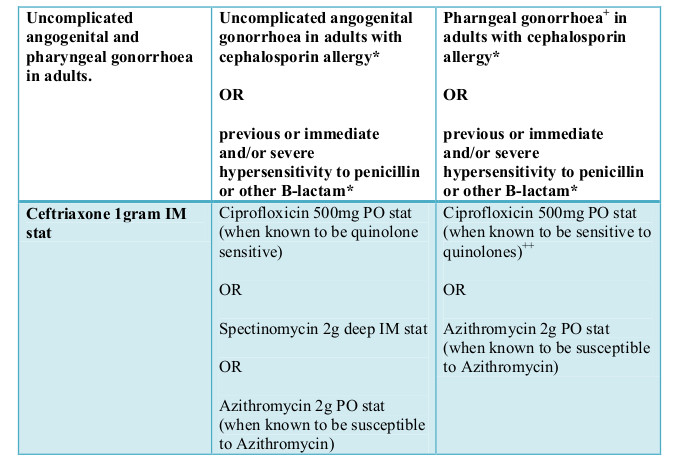Gonorrhea Treatment In Women: Antibiotics And Preventive Measures
Gonorrhea, or as some may call it "the clap", has been causing a lot of trouble lately. This sexually transmitted infection (STI) is becoming increasingly resistant to antibiotics, leaving only one drug to treat it. And let's be real, nobody wants to deal with a bacterial infection that can't be taken care of with a simple round of antibiotics. So, let's dive into understanding this pesky STI and why it's so important to take it seriously.
What is Gonorrhea?
Gonorrhea is a bacterial STI that can be contracted through unprotected oral, vaginal, or anal sex. It can also be passed from mother to baby during childbirth. The bacteria, called Neisseria gonorrhoeae, can infect the urethra, cervix, rectum, and throat.
Importance of Taking Gonorrhea Seriously
While gonorrhea may seem like a minor inconvenience, it can actually cause serious complications if left untreated. In women, it can lead to pelvic inflammatory disease (PID), which can cause infertility. In both men and women, it can cause painful genital and anal swelling, discharge, and bleeding. It can also increase the risk of contracting and spreading other STIs, including HIV.
Statistics on Gonorrhea
According to the Centers for Disease Control and Prevention, there were over 587,000 cases of gonorrhea reported in the United States in 2018. This is an increase from previous years and a concerning trend. It is estimated that there may be even more cases that go unreported due to lack of testing or symptoms going unnoticed.
Types of Gonorrhea
There are different types of gonorrhea that can infect different parts of the body. These include:
- Genital gonorrhea, which affects the urethra, cervix, and rectum
- Pharyngeal gonorrhea, which affects the throat
- Anal gonorrhea, which affects the anus and rectum
Risk Factors for Gonorrhea
Anyone who is sexually active can contract gonorrhea. However, certain factors can increase the risk of infection. These include:
- Having multiple sexual partners or having sex with someone who has multiple partners
- Having unprotected sex
- Having a previous history of STIs
- Being under the age of 25
- Being a man who has sex with men
Recognizing Early Symptoms of Gonorrhea
Symptoms of gonorrhea may not appear for several weeks after infection. In some cases, there may be no symptoms at all. However, if symptoms do present themselves, they often include:
- Painful urination
- Unusual discharge from the penis or vagina
- Rectal discharge or pain
- Swollen testicles
- Throat pain
Diagnostic Testing for Gonorrhea
If you suspect you may have contracted gonorrhea, it's important to get tested. The test involves a urine sample for men and a urine sample and swab of the cervix for women. In some cases, a throat or rectal swab may also be taken. Testing is usually done at a healthcare provider's office or clinic and results can take up to a week to come back.
Awareness and Prevention of Gonorrhea
The best way to prevent gonorrhea is to practice safe sex. This includes using condoms and engaging in regular STI testing. It's also important to have open and honest conversations with sexual partners about STD testing and protection. Awareness and education are key in preventing the spread of this and other STIs.
Early Detection of Gonorrhea
As mentioned earlier, gonorrhea may not present symptoms right away or at all. That's why early detection through regular STI testing is so important. Early detection allows for timely treatment and prevention of complications and spreading the infection to others.
Timely Treatment of Gonorrhea
If you are diagnosed with gonorrhea, it's important to start treatment right away. The antibiotics used to treat the infection can help alleviate symptoms and prevent long-term complications. However, with the rise of antibiotic-resistant strains of gonorrhea, it's vital to complete the full course of treatment as prescribed by a healthcare provider. Failure to do so can increase the risk of developing a more severe infection and lead to treatment failure.
Support and Resources for Gonorrhea
If you are diagnosed with gonorrhea, know that you are not alone. Support and resources are available through healthcare providers, STI clinics, and online. It's important to seek out these resources and take advantage of them to ensure a healthy recovery and prevent future infections.





Now that we've covered the basics of gonorrhea, it's important to take the necessary steps to protect ourselves and prevent the spread of infection. Safe sex practices, regular STI testing, and timely treatment can all help to keep us healthy and happy. Let's stay informed and take care of ourselves and each other.
Komentar
Posting Komentar